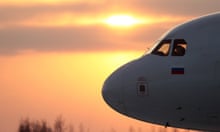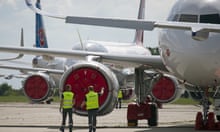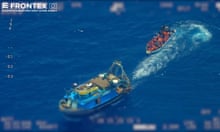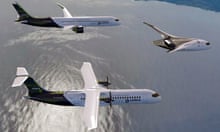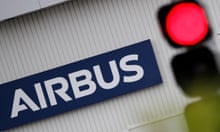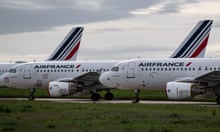Europe is unprepared for war with Russia or the risk that Donald Trump could withdraw the US from Nato and needs to ramp up spending on defence equipment, the boss of Airbus has said.
Guillaume Faury, the chief executive of Europe’s biggest aerospace and defence company, said it was a “defining moment” for the continent’s defence industry, after Russia’s full-scale invasion of Ukraine in 2022 brought war to western Europe’s borders.
European nations had relied too much on the US for their security and hardware and become “sub-critical” in key areas of defence, he said. He urged Europe and the UK to “pool our efforts” and merge rival fighter jet programmes.
The intervention by Faury, whose company makes military equipment ranging from Eurofighter Typhoons to helicopters and builds half of the world’s commercial jets, comes amid growing threats from Vladimir Putin. The Russian president recently told Nato countries they risk provoking a nuclear war if they send troops to fight in Ukraine, in a direct riposte to France’s Emmanuel Macron, who opened the door to the prospect.
“We are coming from peacetime,” Faury told the Guardian. “I don’t think Europe has yet the level of preparedness that you would need for a conflict between Europe and Russia. Let’s call a spade a spade. And it seems like Russia is ramping up its defence capabilities.
“We’ve been almost 80 years post-world war two, with a different system that was more designed to deter others from attack, not really preparing for a conflict. If we want to be prepared for potentially different levels of engagement and conflict, then we need to ramp up.”
Faury, a former military helicopter test pilot who became chief executive of Airbus in 2019, said Trump’s warnings about quitting Nato should be a wake-up call to Europe on both security and availability of equipment. The former US president, now the presumptive Republican presidential nominee, has repeatedly called on Europe to spend more on defence and recently said he would encourage Russia to attack Nato members he deemed financially “delinquent”.
“As long as Nato is Nato and provides the level of protection that is expected from Nato, that’s a certain reality,” Faury said. “If we start to believe the reality could be different … we’d better anticipate this potential situation. We had the first warnings with Trump 1. If Trump 2 is of the same nature or even more in terms of the US expecting Europe to take care of itself … we’d better take it seriously.”
In recent decades Europe has increasingly relied on American hardware, contributing to the decline of its own industrial base. Lockheed Martin’s F-35 stealth fighter jet is flown by countries including the UK, Germany, Belgium, Italy and the Netherlands. Boeing supplies the UK with Apache and Chinook helicopters, C-17 heavy lift planes, P-8 spy jets and E-7 sentry planes, all built in the US.
MPs on the UK’s public accounts committee said on Friday that the government had no credible plan to fund the armed forces and was increasingly reliant on its allies.
“If you want to be sovereign; to be in control of your future, of what’s happening at the borders of Europe, Europe needs to be by far more independent; really being sovereign on its own defence procurement,” Faury said. “We’ve put a lot in the hands of others. We are sub-critical on most of the different systems in Europe, we don’t collaborate enough to create investment at scale. We buy mostly from outside of Europe, and mostly from the US.”
He said development of sixth generation European fighter jets must not repeat mistakes of the past, when resources were split across three competing aircraft: the Eurofighter, Sweden’s Gripen and France’s Rafale. European orders for the F-35 exceeded the combined orders for the Eurofighter and Rafale, he said.
after newsletter promotion
The UK, Japan and Italy are working together to build a new fighter jet called Tempest, involving the tank and jet manufacturer BAE Systems, the engine-maker Rolls-Royce, the helicopter and systems manufacturer Leonardo and the European missile-maker MBDA. Meanwhile, France, Germany and Spain are developing a rival future combat air system, involving Airbus and Dassault, maker of the Rafale.
Faury said: “We need to cooperate between European countries, including the UK, because we are in businesses where scale matters. The US has scale and they’ve gone for one fighter. We’ve gone for three different fighters.
“It’s quite clear that we need to find a way to pool our efforts together as Europeans to have one very powerful capability by type of weapon system. Does it make sense to not come together for security and defence with the level of insecurity that we see at the borders of Europe? No, I think there’s no choice.
“This is a defining moment when it comes to Europe as a defence and security player or not.”

